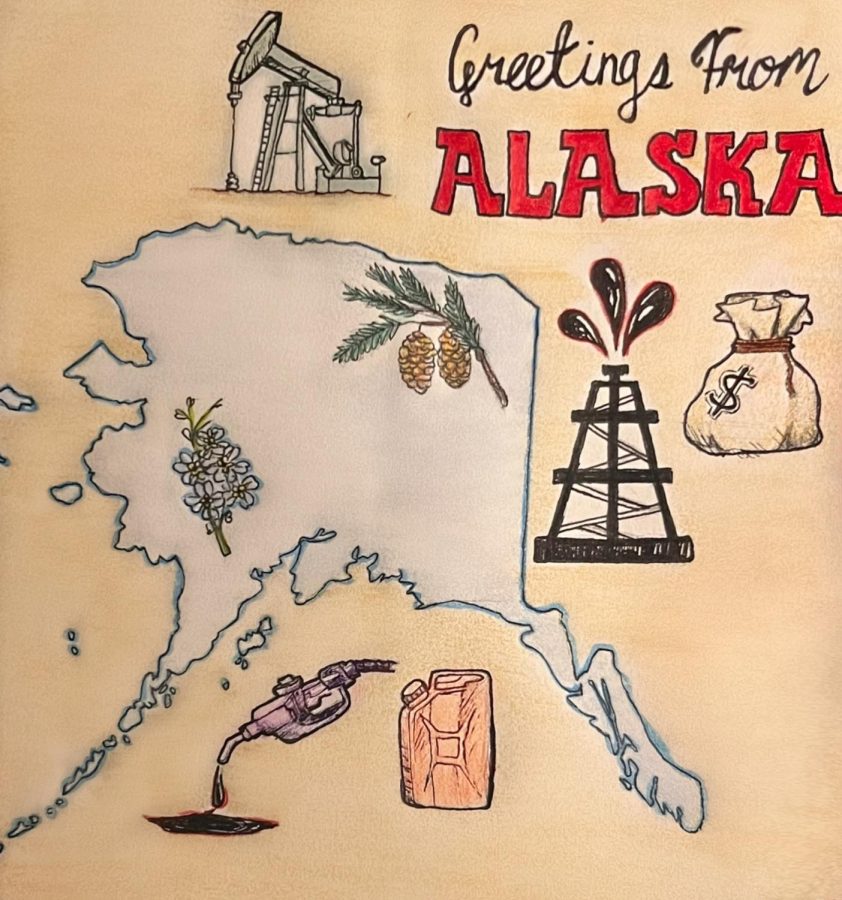ConocoPhillips partners with UT to research renewable energy, prepare for Willow Project
March 30, 2023
The Willow Project, approved by the Biden administration on March 13, is one of the biggest oil drilling projects in U.S. history. ConocoPhillips, which heads the Willow Project, has worked with the UT Energy Institute for 12 years and the two entities are currently collaborating on a renewable energy project.
Their current collaboration serves to push ConocoPhillips closer to their goal of near-zero methane emissions. According to ConocoPhillips’ website, the project expects production of 180,000 barrels of oil per day, equating to 1% of daily U.S. oil production. However, they expect to generate $8 billion for federal and state use and provide 2,500 temporary jobs. With these opposing factors, the project faces controversy.
Energy Institute director Brian Korgel said their partnership with ConocoPhillips aims to help them with their net zero goals.
ConocoPhillips’ net zero goal focuses on scope one and two emissions, emissions released by the company itself. Scope three emissions refer to those emitted by the consumers using their products — gas usage and transportation. Korgel said most environmentalists’ concerns revolve around scope three emissions, which the Willow Project does not directly emit.
“Oil and gas companies might (ask), ‘Is it a reasonable expectation for me to be responsible for everybody’s emission?’” Korgel said. “But on the flip side, it has to be someone’s responsibility, and (the energy provider has) some choice in how (they) provide the fuel.”
Korgel said some oil companies, including Energy Institute partner Shell, take responsibility for scope three emissions. ConocoPhillips’ sole focus on scope one and two emissions allows them to execute this project while still maintaining their goal.
Isabel Holland, a sustainability and biology freshman, said her main concern lies within scope three emissions, but she also worries about the project’s direct impact like oil spills and urbanization.
“There’s going to be more people moving up there and more roads, so more pollution and less natural landscape,” Holland said. “The economy is going to benefit up there, but in the long run, it probably won’t.”
Larry Lake, petroleum and geosystems engineering professor, said the U.S. produces more oil than it consumes, so the economical benefits of the project outweigh environmental risks. Lake said the project would also decrease reliance on foreign energy.
“ConocoPhillips will make money from it,” Lake said, “And we live in a capitalist society.”
Muiz Adekomi, secretary of UT Switch Energy Club, said energy drives society and that war, economy and the relationship between countries depends on consumption of oil.
“Some people think energy poverty is going to kill people faster than climate change,” Adekomi said. “Right now, renewable (energy) cannot (drive the economy), so we need something to fill up that point. We cannot go back to the Stone Age, so we need energy.”
Korgel said the Energy Institute gathered research from ConocoPhillips with research from the consumers to capture the big picture.
“We develop research processes that are considering the whole thing,” Korgel said. “That is the role we play at UT to help reduce emissions overall.”



